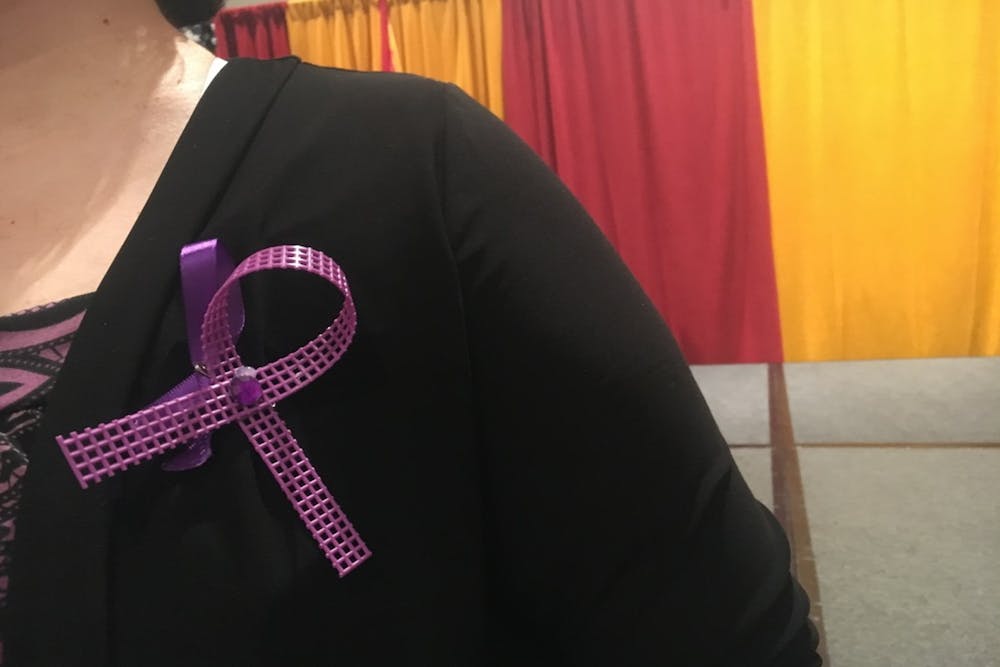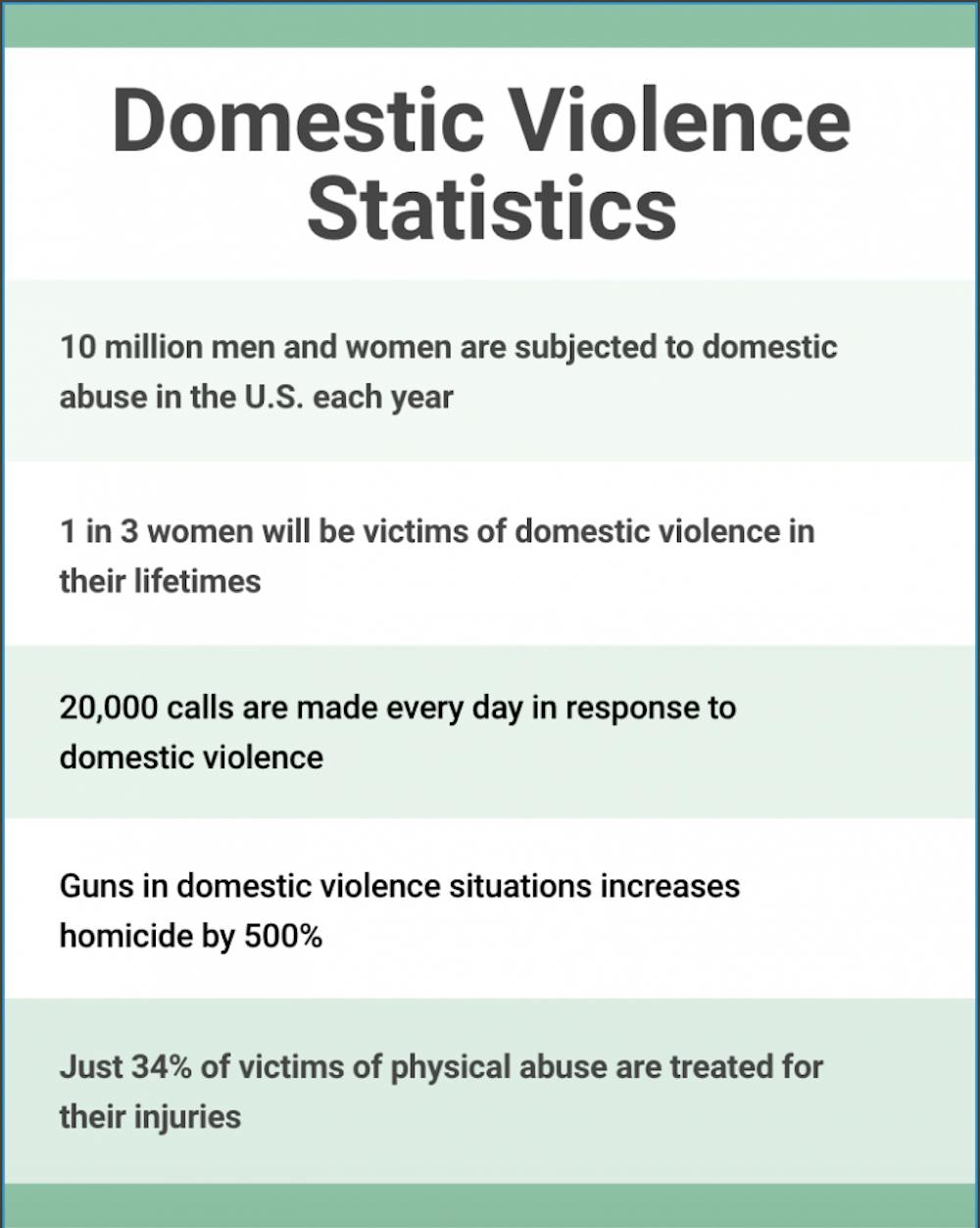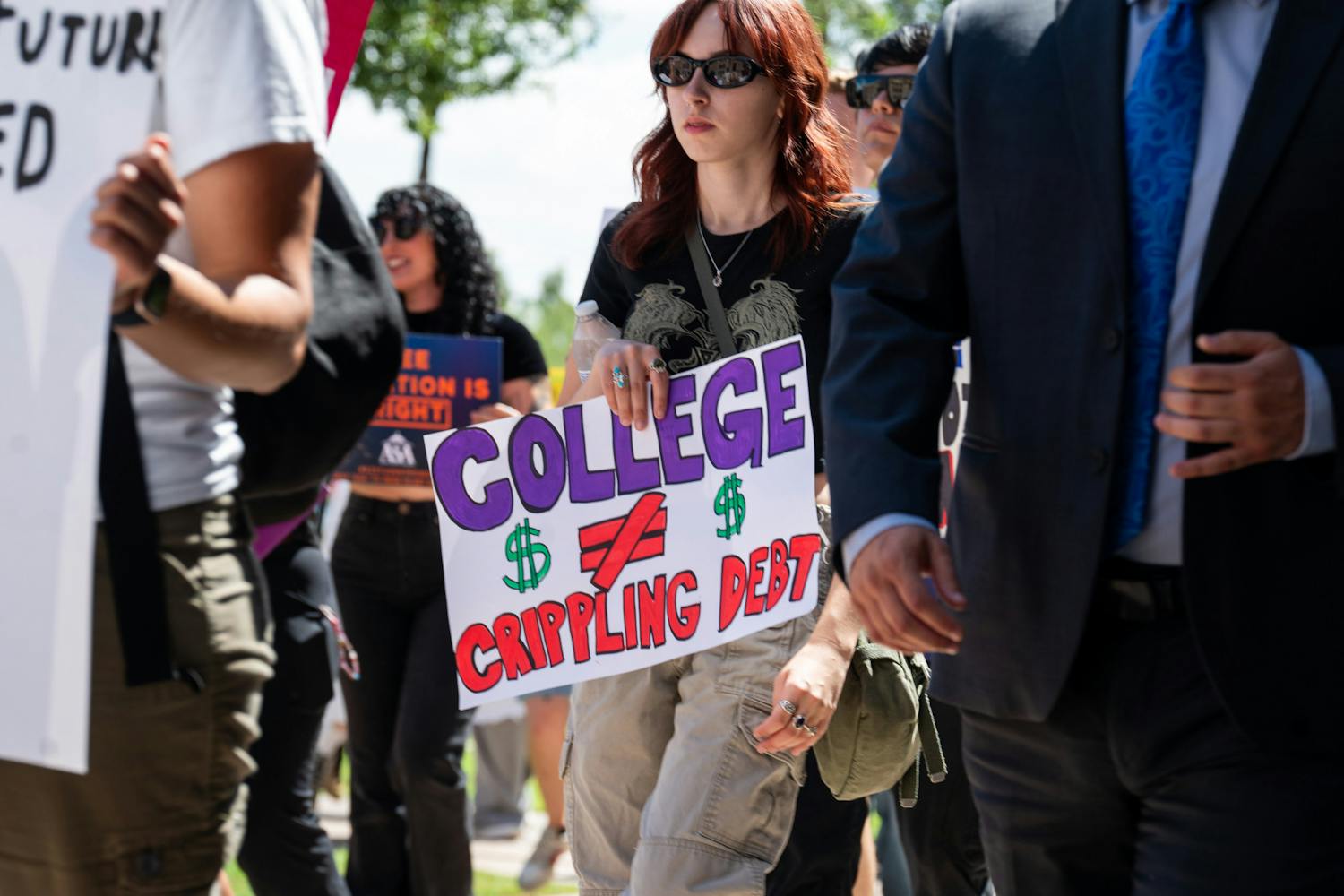One in three women will experience physical violence by an intimate partner within their lifetimes, according to the National Coalition Against Domestic Violence.
The increasing rate of domestic violence sparked Jill Messing, an associate professor of social work at ASU, to collaborate with other experts across the U.S. to create myPlan, an app to help educate women about healthy relationships, identify red flags and debunk common myths surrounding domestic violence.
Ten years ago, Messing met with Nancy Glass of Johns Hopkins University and Karen B. Eden of Oregon Health and Science University to begin researching and developing an app with decision aides which, in this case, are quizzes designed to help victims of domestic violence get out of abusive relationships.
"(Decisions aides) are used often in the health literature, and there's a lot of evidence that they're really effective at helping people make difficult decisions," Messing said. "Women who are in abusive relationships are often making very difficult decisions, but they don't really have anything to help them do that."
A section of the app labeled "Red Flags" list of series of yes or no questions like, "Does your partner/ex make you feel guilty for doing things you like?" and, "Are you afraid of making your partner angry?" At the end of this series of questions, the app will tell the user whether or not their relationship is healthy.
The app can only be accessed with a passcode, securing the information from a possible abuser.
"It was really hard because I didn't really know how I was supposed to be treated," said Jenny McCluskey, a junior studying kinesiology who went through an unhealthy, mentally abusive 10-month relationship. "After breaking up, it was more of me realizing, 'Oh, I was ridden with anxiety and stress.'"
One of the myths the app seeks to dispel is the idea that domestic abuse is only physical. It is about power and having control over your significant other.
A year after a 2014 investigation by the Department of Education to determine whether 88 universities, including ASU, had mishandled sexual assault cases, ASU PD created its Special Victims Unit to investigate cases of domestic violence and sexual assault.
"It's happening on campus. We know that it's happening," Lynn Spillers, a victim advocate at ASU PD SVU, said. "I am a confidential resource, so just like ASU counseling and ASU health services, students can come to me and they can disclose abuse, and then I can give them reporting options."
Only 25 percent of domestic violence incidents are reported to the police. Common patterns for unreported events of domestic and sexual assault are due to the victims' fear of "victim blaming," unsatisfactory law enforcement response or a mindset that the assault is not a crime because of the culture the victim grew up in, Spillers said.
Victim blaming, as defined by US Legal, is "a devaluing act where the victim of a crime, an accident or any type of abusive maltreatment is held as wholly or partially responsible for the wrongful conduct committed against them." myPlan's "Myths" section helps to dispel some of the ideas about victim blaming surrounding domestic and sexual assault, and encourage victims to speak up to authorities about their experiences.
Launched earlier this year, myPlan currently has 3,430 downloads on iOS and Android devices. In January, myPlan expects to launch a campaign to release dissemination materials at ASU to increase the number of people with access to resources they can use to educate themselves on domestic violence and healthy relationships, Messing said.
"Everybody knows someone – if they haven't experienced it themselves – that they know somebody who's experienced domestic violence," Messing said. "Even if somebody isn't experiencing it themselves, that they can recognize it in their friends and they know what to do."
Reach the reporter at cbudnies@asu.edu or follow @ChaseHBudnies on Twitter.
Like The State Press on Facebook and follow @statepress on Twitter.





